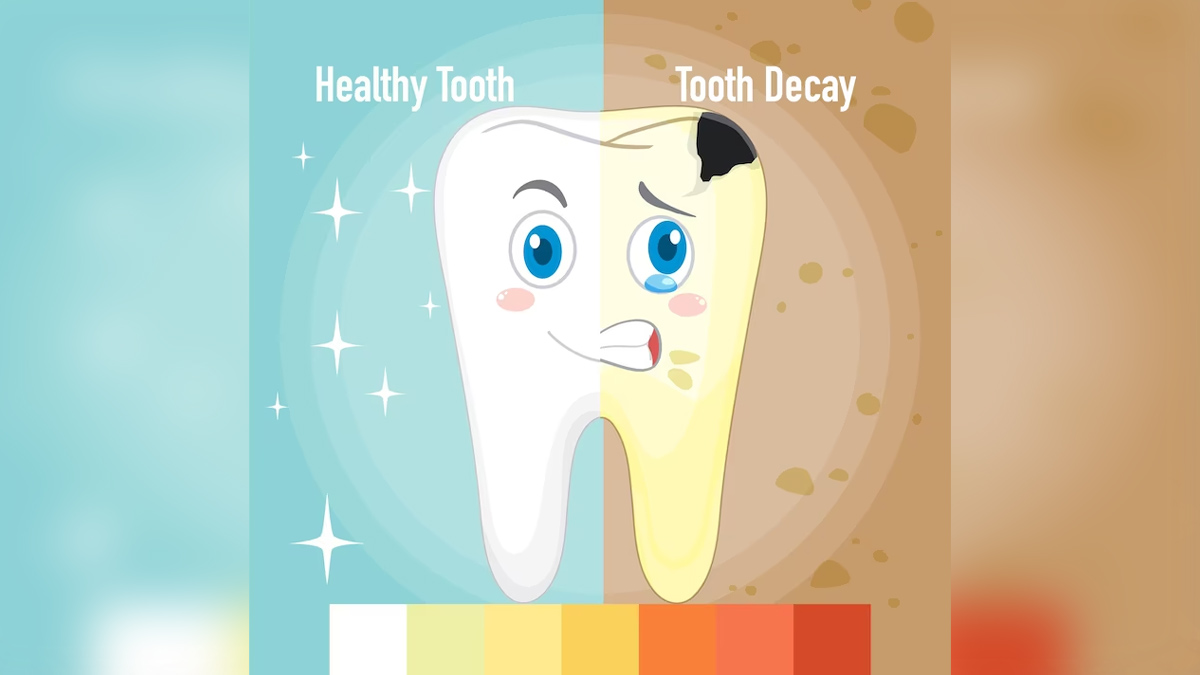Binge eating is an impulsive behaviour marked by the consumption of large amounts of food within a short time frame, which can have substantial implications on oral health. While the impact on weight and metabolism is well-known, many people overlook the potential harm it can cause to their oral health. Neglecting oral hygiene and exposing the teeth to excessive sugars and acids can lead to various dental problems. To know more about it, we spoke to Dr Nihal Yadav, BDS, Amayra Dental Clinic, Kaushik Enclave, Burari, Delhi and Former Resident, Deen Dayal Hospital, Hari Nagar, Delhi.
Why Do People Binge Eat?
“Binge eating can stem from various emotional, psychological, and physiological factors. Stress, anxiety, depression, and low self-esteem are common triggers for this compulsive behaviour. Food often becomes a coping mechanism to numb negative emotions or fill a void,” said Dr Nihal.
“Additionally, societal pressures, body image concerns, and unrealistic beauty standards can contribute to the development of disordered eating patterns,” he added. He said that some individuals may use binge eating as a way to regain a sense of control in their lives or as a response to restrictive diets.
Also Read: Anorexia Nervosa: Eating Disorder Causes And Symptoms
A study published in the journal Obesity suggests that the levels of dopamine in the brain may play a role in binge eating tendencies. Understanding the underlying causes of binge eating is crucial for addressing the issue effectively.
Consequences of Binge Eating on Oral Health
In terms of oral health, binge eating can have notably adverse effects. Here are several ways in which this behaviour can influence the well-being of your teeth and gums.
Tooth Decay

Binge eating often involves the consumption of sugary and acidic foods and beverages. Dr Nihal said that frequent exposure to these substances can lead to tooth decay and cavities. “The sugars present in many binge foods act as a food source for harmful bacteria in the mouth, resulting in the production of acid that erodes tooth enamel, leading to tooth decay,” he added.
Gum Disease
Poor oral hygiene practices, coupled with excessive snacking during binge episodes, can lead to gum disease. “Bacteria accumulate in the mouth, forming plaque and tartar, which irritate the gums and cause inflammation,” explained Dr Nihal. “Over time, this inflammation can progress into gum disease, leading to gum recession, tooth loss, and serious oral health complications,” he added.
Also Read: Gum Disease: Your Gums Can Never Grow Back After Receding
Tooth Sensitivity

Acidic foods and beverages, such as sodas and citrus fruits, are commonly consumed during binge episodes. The doctor said that the acid content in these items can erode tooth enamel, leading to tooth sensitivity. “Exposed dentin can cause discomfort or pain when consuming hot, cold, or sweet foods and drinks, diminishing one’s quality of life,” he added.
Dry Mouth
Binge eating often involves the consumption of foods high in sugar or salt. “These foods can dehydrate the body and reduce saliva production, leading to dry mouth,” said Dr Nihal. He added that saliva plays a crucial role in maintaining oral health by neutralising acids, washing away food particles, and preventing bacterial overgrowth. “Without adequate saliva, the risk of tooth decay and gum disease increases,” he added.
Conclusion
If you find yourself struggling with binge eating, it is essential to seek help from healthcare professionals, such as therapists or nutritionists, who can provide guidance and support.
Taking care of your oral health through regular dental check-ups, proper oral hygiene practices, and a balanced diet can help mitigate the risks associated with binge eating, ensuring a healthier smile and overall well-being.
[Disclaimer: This article is for informational purposes only. Consult your healthcare provider to get a thorough diagnosis and treatment as per your health needs.]
Image Credits: freepik
Read Next
Is Cracking Knuckles Good Or Bad? Know HereDisclaimer

